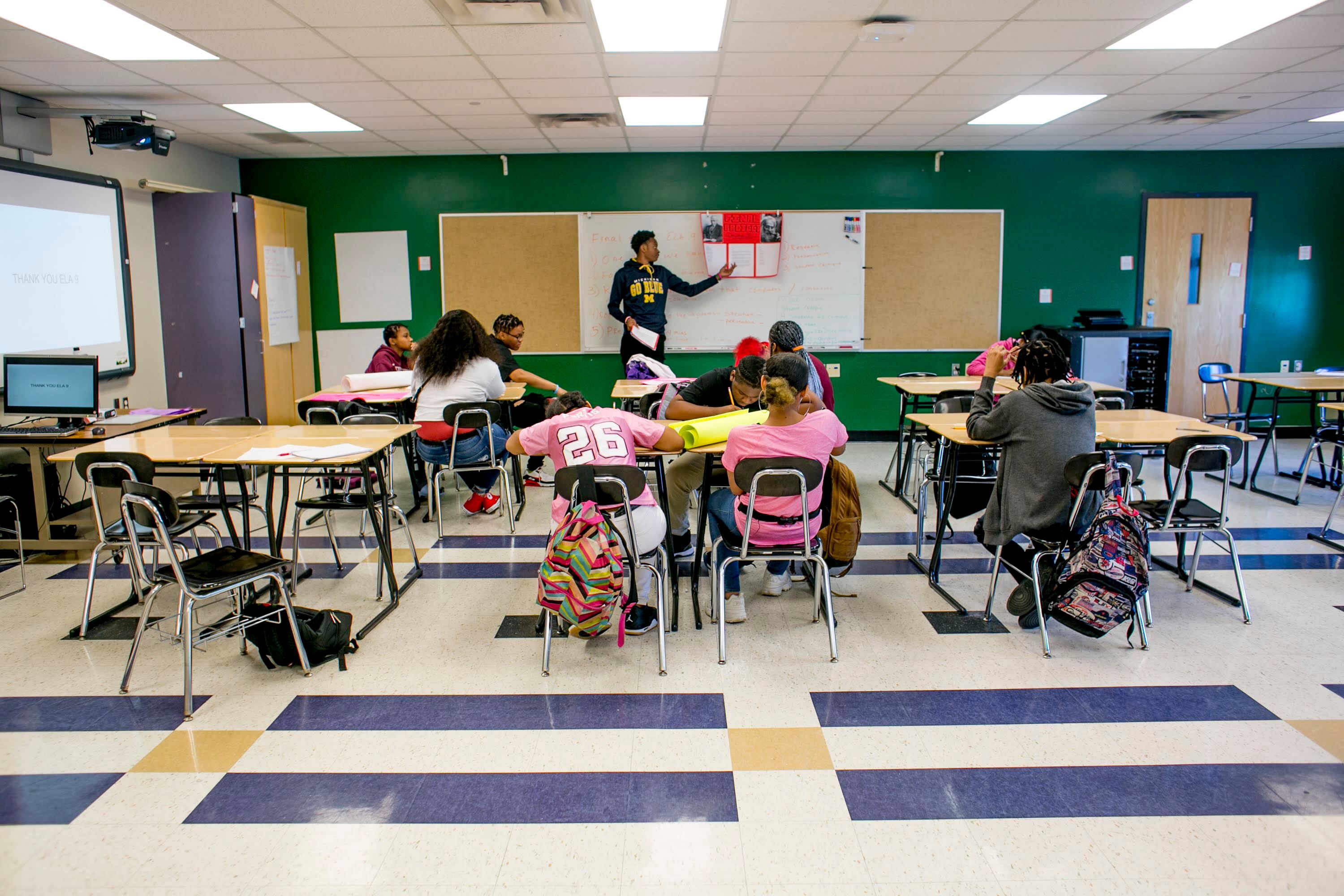Most Michigan residents say the state’s public schools are doing a good job, even during the pandemic. But more than a third say the quality of schools has worsened over the past few years, and two-thirds say schools need more money.
Those findings are part of a recent survey commissioned by Launch Michigan, a coalition of business, education, labor, philanthropy, and civic leaders working to improve education.
The Glengariff Group conducted the survey, querying 600 Michigan voters in July, just after the Legislature approved the biggest ever state investment in basic education funding and as the federal government was distributing some of Michigan’s $6.1 billion in federal COVID-relief funding.
Launch Michigan is among the education advocacy groups that have been pushing for changes to the state’s school funding system that prioritize spending on districts with the largest numbers of vulnerable students.
Fifty-four percent of respondents said they approve of Michigan’s public schools, while 27% disapprove, according to the survey commissioned by Launch Michigan. Nineteen percent of respondents had no opinion.
Those who disapproved cited poor quality of education (18.5%) or political or moral leanings the respondent disagrees with (13%), and poor teachers or teaching methods (11.1%).
Democrats were more likely than Republicans to give favorable opinions overall, and especially in answering questions about how schools responded to the pandemic.
Here are some of the other key findings:
- Strong Democrats (79.9%) and those who lean Democratic (63.1%) were far more likely than strong Republicans (34.1%) and those who lean Republican (36.3%) to say schools need more money. Overall, 65% of respondents said schools need more money, 19.7% said they have about enough, 5.7% said they have too much, and 9.7% did not give an opinion.
- Most respondents (57.8%) said teachers aren’t paid enough. Strong Democrats (78.8%) and respondents who lean Democrat (63.2%) were far more likely than strong Republicans (34.1%) and those who lean Republican (29.5%) to say so.
- Respondents were more likely to approve of their local schools (64.9%) than the state public education system as a whole (53.8%)
- Seventy-five percent of strong Democrats and 81.6% of respondents who lean Democratic gave high marks for handling the pandemic, while 32.6% of strong Republicans and 38.6% of those who lean Republican disapprove of the pandemic response.
- Thirty-nine percent of respondents say the quality of education in Michigan has gotten worse over the last few years, 36.8% said it has stayed the same, and 12.8% said it has gotten better. Other respondents had no opinion.
- By a margin of 84.3% to 11.8%, voters strongly support public school choice in Michigan. A narrower majority (58.4% to 29.5%) support independently operated, publicly funded charter schools.
The telephone survey was conducted July 10-15. It has a margin of error of plus or minus 4 percentage points at a 95 percent confidence level.






